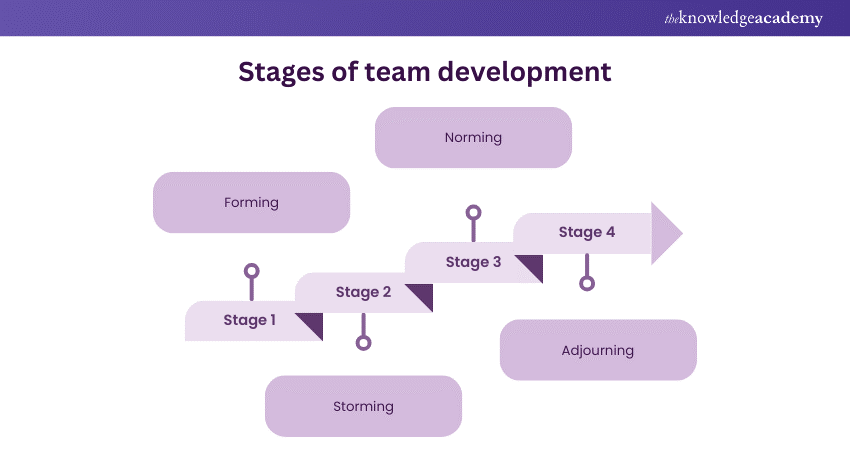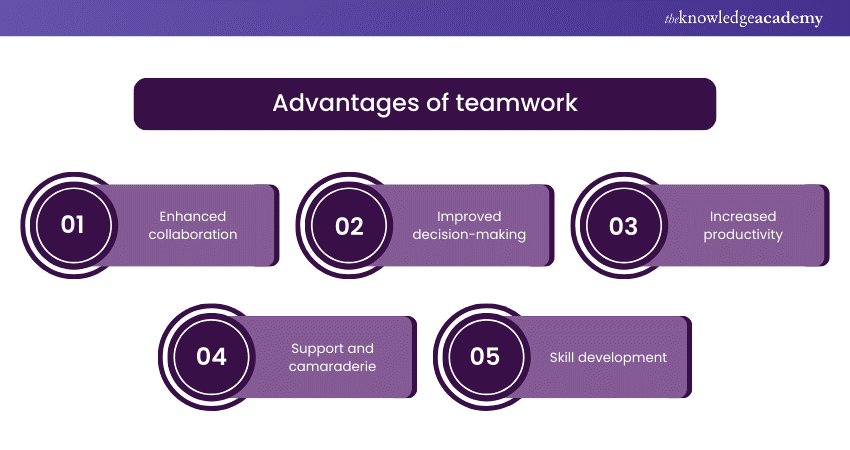We may not have the course you’re looking for. If you enquire or give us a call on 01344203999 and speak to our training experts, we may still be able to help with your training requirements.
Training Outcomes Within Your Budget!
We ensure quality, budget-alignment, and timely delivery by our expert instructors.

Are you ready to unlock the secrets of effective Leadership? Aspiring Leaders and seasoned professionals alike are constantly seeking avenues to enhance their skills and make a profound impact within their organisations. With ILM Level 2 Assignment Answers, you can get access to in-depth knowledge and insights designed to elevate your Leadership capabilities and propel your career forward.
In this blog, we will present exemplary details of the ILM 8601-203, which delves into the nuances of team dynamics. In addition, it includes the details associated with the pros and cons of teamwork within organisational contexts. Through meticulous analysis and strategic thinking, we will demonstrate how to craft insightful ILM Level 2 Assignment Answers that meet the rigorous standards of such qualifications.
Table of Contents
1) What is an ILM assignment?
2) ILM 8601-203 task 1: Team dynamics
3) ILM 8601-203 task 2: Team pros & cons
4) How to pass the assignment?
5) Are all assignments the same?
6) Conclusion
What is an ILM assignment?
The Institute of Leadership & Management (ILM) offers a range of qualifications designed to enhance Leadership and Management skills. ILM assignments form an integral part of these qualifications, allowing learners to apply theoretical knowledge to practical scenarios and demonstrate their understanding of key concepts.
ILM 8601-203 task 1: Team dynamics
Task 1 of ILM 8601-203 training is focused on team dynamics within the work organisation. The course entails an in-depth study of the aspects that impact team performance, which include communication styles, Leadership dynamics, and conflict resolution techniques. A study of case stories and guiding principles gives learners a deeper understanding of the factors that make a team perform well. Let's explain its task components:
1) Describe how teams differ from groups at work.
The teams and groups in the workplace have major variations in certain critical parameters. The distinguishing characteristic of a team is that everyone has a shared purpose and goals, they are interdependent, and they are mutually accountable for the results. Teams engage in close collaboration to achieve specific goals, while a group functions more autonomously without unified objectives.
2) Describe the characteristics of a successful team.
Teamwork that brings success to an organisation exhibit the list of features. They are goal-oriented, as well as responsible for promoting collaborations and diverse opinions. High-performing teams display flexibility, robustness, and the readiness to implement progress in a collective way.
3) Describe the stages of team development using a recognised model.
Teams typically progress through stages of development. Those stages include forming, where team members get acquainted and establish goals; storming, where conflicts arise as roles and responsibilities are clarified.

It also includes norming, where cohesion and cooperation develop; performing, where the team achieves high levels of productivity; and adjourning, where the team disbands after completing its objectives.
Advance your Leadership journey by registering in our ILM Level 2 Certificate in Leadership and Team Skills - join us now!
ILM 8601-203 task 2: Team pros & cons
Task 2 of ILM 8601-203 delves deeper into the pros and cons of team-based approaches within organisations. Learners are tasked with evaluating the advantages and disadvantages of working in teams, considering factors such as collaboration, innovation, decision-making, and potential challenges. This task encourages critical thinking and reflective analysis, enabling learners to identify strategies for maximising team effectiveness.
1) Identify the responsibilities of the team members.
Team members serve as the driving force behind a project's progress and achievement. Let's explore the key responsibilities that define their contributions to collaborative endeavours:
a) Team members actively participate in team activities and discussions
b) They contribute their skills, knowledge, and expertise towards achieving team goals
c) They communicate openly and transparently with fellow team members, sharing information and feedback.
d) They adhere to agreed-upon deadlines and deliverables, ensuring timely completion of tasks.
e) They support and encourage their team members, fostering a positive and collaborative team environment.
2) Describe the benefits of teamwork.
Effective teamwork is a way more than just individuals working together. Let's talk about their advantages in the following points:

a) Teams bind individuals from diverse backgrounds and perspectives, thereby fostering creativity and innovation.
b) Collective input and brainstorming lead to better-informed decisions and solutions.
c) By pooling resources and skills, teams can accomplish tasks more efficiently and effectively.
d) Working in teams provides emotional support, motivation, and a sense of belonging.
e) Teamwork offers opportunities for learning and growth as members share knowledge and expertise with each other.
3) List the disadvantages of working with a team
Working within a team environment also comes with its own set of challenges. Here are some of the disadvantages of working with a team:
a) Potential for conflicts: Differences in opinions, personalities, and working styles can lead to conflicts and disagreements.
b) Coordination challenges: Coordinating schedules, tasks, and responsibilities among team members can be complex and time-consuming.
c) Free-riding: Some team members may not contribute equally to the team's efforts, leading to uneven workload distribution.
d) Groupthink: Pressure to conform to the group's consensus may stifle creativity and independent thinking.
e) Decision-making delays: Building consensus and reaching decisions collectively may prolong the decision-making process.
Boost your career opportunities and transform into a vibrant Leader by joining our ILM Level 2 Certificate in Team Leading!
How to pass the assignment?
Being able to handle the ILM task in a proper manner means putting much time and effort into preparation and paying attention to detail. Students are required to go through the task description, get acquainted with the theory of concepts, and use critical thinking skills to analyse and appraise the given quotes. Time Management skills, focused communication, and an understanding of the expected results from the assignment are all things that are necessary for a successful assignment.
Are all assignments the same?
While the overall structure of ILM assignments may follow a similar format, the specific tasks and requirements can vary depending on the qualification and unit being studied. It's crucial for learners to carefully review the assignment brief and understand the unique expectations for each task. Tailoring responses to address specific criteria and providing relevant examples and evidence can enhance the quality and effectiveness of assignment submissions.
Conclusion
In conclusion, navigating an ILM Level 2 Assignment, such as ILM 8601-203, requires a strategic approach and a detailed understanding of the task requirements. Exploring ILM assignments becomes an achievable goal for aspiring Leaders and Managers. By mastering the ILM Level 2 Assignment Answers, learners can progress towards achieving their ILM qualifications.
Cultivate robust team interactions through our ILM Level 2 Award in Leadership and Team Skills Training - secure your place today!
Frequently Asked Questions

The ILM Level 2 Team Leader qualification equips individuals with essential Leadership skills to effectively manage teams and achieve organisational goals. It covers areas like communication, motivation, and problem-solving, preparing pupils for Leadership roles in various industries.

ILM is widely recognised and respected in the industry, offering valuable qualifications that enhance professional development and career prospects. By focusing on practical skills and real-world applications, ILM provides individuals with the tools and knowledge needed to succeed in their roles as Team Leaders.

The Knowledge Academy takes global learning to new heights, offering over 30,000 online courses across 490+ locations in 220 countries. This expansive reach ensures accessibility and convenience for learners worldwide.
Alongside our diverse Online Course Catalogue, encompassing 17 major categories, we go the extra mile by providing a plethora of free educational Online Resources like News updates, Blogs, videos, webinars, and interview questions. Tailoring learning experiences further, professionals can maximise value with customisable Course Bundles of TKA.

The Knowledge Academy’s Knowledge Pass, a prepaid voucher, adds another layer of flexibility, allowing course bookings over a 12-month period. Join us on a journey where education knows no bounds.

The Knowledge Academy offers various ILM Level 2 Courses, including the ILM Level 2 Certificate in Leadership and Team Skills, ILM Level 2 Certificate in Team Leading, and ILM Level 2 Award in Leadership and Team Skills Training. These courses cater to different skill levels, providing comprehensive insights into the ILM Level 3 Assignment Answers.
Our ILM Leadership & Management Blogs cover a range of topics related to ILM Level 2 Certification, offering valuable resources, best practices, and industry insights. Whether you are a beginner or looking to advance your ILM Leadership & Management Skills, The Knowledge Academy's diverse courses and informative blogs have got you covered.
Upcoming ILM, CMI Leadership & Management Resources Batches & Dates
Date
 ILM Level 2 Certificate in Leadership and Team Skills
ILM Level 2 Certificate in Leadership and Team Skills
Mon 5th Aug 2024
Mon 25th Nov 2024
Mon 27th Jan 2025
Mon 14th Apr 2025
Mon 21st Jul 2025
Mon 10th Nov 2025







 Top Rated Course
Top Rated Course



 If you wish to make any changes to your course, please
If you wish to make any changes to your course, please


